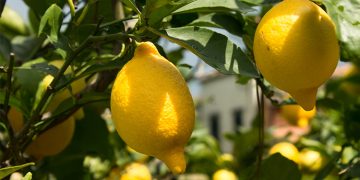A packaging film coated with clay nanotubes developed by Sabanci University was presented at the 254th National Meeting & Exposition of the American Chemical Society (ACS) in Washington, D.C.
A packaging film coated with clay nanotubes, developed as part of a TÜBİTAK ARDEB 1003 project by Sabancı University Nanotechnology Research and Application Center (SUNUM) Researcher Hayriye Ünal as implementer and Sabanci University Faculty of Engineering and Natural Sciences Dean Yusuf Menceloğlu, Sabanci University Faculty of Engineering and Natural Sciences Member Fevzi Cakmak Cebeci and Integrated Manufacturing Technologies Research and Development Center (TÜMER) Researcher Serkan Ünal as advisors was presented at the 254th National Meeting & Exposition of the American Chemical Society (ACS) in Washington, D.C.
Nano-clay packaging can prevent economic losses from spoilage
Over the past two decades, scientists have been developing alternative ways to preserve food, with an extensive focus on packaging. Sabanci University Nanotechnology Research and Application Center (SUNUM) Researcher Hayriye Ünal and her team developed a packaging film coated with clay nanotubes packed with an antibacterial essential oil. The film prevents over-ripening and microbial growth, which could help improve the shelf life of perishables.
Discussing the project, Hayriye Ünal said “Food packaging that is capable of interacting with food can contribute to safety and prevent economic losses from spoilage” and added that low-cost packaging could be custom-designed for specific food types.
Effectiveness tested on tomatoes, bananas and chicken
The team wrapped tomatoes, bananas and chicken in the film to test its effectiveness over varying amounts of time compared to foods wrapped in plain polyethylene. After 10 days, tomatoes wrapped with the new film were better preserved than the control vegetables. In addition, the new film helped bananas stay more firm and keep their vibrant yellow color after six days compared to the control fruit. And chicken enveloped with the experimental film and refrigerated for 24 hours showed significantly less bacterial growth than chicken in plain polyethylene.
#SabanciUniversity, #antimicrobial, #packaging
















